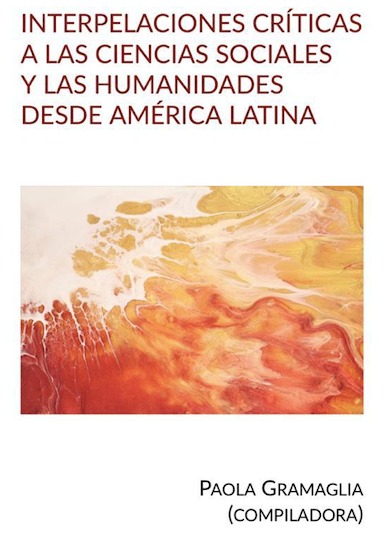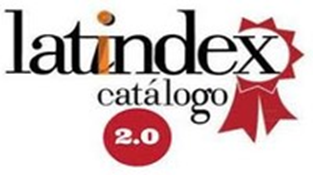Join the body, time and space from the Global South: philosophizing from Nuestra América
Keywords:
Latin America, social sciences , coloniality, social sciences and colonialityAbstract
This text is a heartfelt and enjoyed review of a book with local and regional power, organized into chapters that open different windows to the Social Sciences, under the title "Critical interpellations to the social sciences and humanities from America Latina”, coordinated by Dr. Paola Gramaglia. From the tour of the different texts of this compilation, I highlight and analyze debates that the authors propose on different aspects of the coloniality of power, being, knowledge and gender. Coloniality that is identified even in those agents and social movements that are counter-hegemonic, such as feminisms. Throughout the book, we measure how complex it is to question university knowledge from the university itself and the authors know it, which is why they strive to disarm and demonstrate what happens to counter-hegemonic discourses when they are captured by the academic and neoliberal discourse. Also, the way in which people work all the time against ourselves, in favor of our own domination, especially visible in structures such as universities. Mainly, the particularity of this book is that the commitment to social change is not located especially in the radical transformation of the structures, but rather it attends to the micropolitical agency of the subjects. Problematic situation, because we already know at this point in social theory that oppressions are not always material, but rather live within us and that they constitute us as subjects from birth itself. However, there are groups that still resist and create in the face of this adverse context and this book is an example of this, of the encounter between rebellious wills that investigate, debate and write to help reveal oppressions and dream up new ways of building decolonial communities.
Downloads
References
Audre Lorde (2003) La hermana, la extranjera. Artículos y conferencias, traducción de María Corniero, revisión de Alba V. Lasheras y Miren Elordui Cadiz. Madrid: Horas y horas
Bell Hooks (2021) Enseñar a transgredir. La educación como práctica de la libertad. Buenos Aires: Capitán Swing Libros
Kohan, Alexandra (2022) Un cuerpo al fin. Buenos Aires: Paidós.
Lacan Jaques (1981) Seminario 20 – Aun. Buenos Aires: Paidós.
Negroni, Maria (2022) El corazón del Daño. Buenos Aires: Literatura Random House.
Segato, Rita (2020) “La politicidad de las mujeres no reconoce vanguardias”. Revista Catarsis.https://catarsisrevistaargentina.wordpress.com/2020/05/09/rita-segato-la-politicidad-de-las-mujeres-no-reconoce-vanguardias/
Tzul TzuL, Gladys (2020) “Las mujeres indígenas reivindicamos una larga memoria de lucha por la tierra”. Revista Amazonas. https://www.revistaamazonas.com/2020/04/03/gladys-tzul-tzul-las-mujeres-indigenas-reivindicamos-una-larga-memoria-de-lucha-por-la-tierra/

Downloads
Published
Issue
Section
License

This work is licensed under a Creative Commons Attribution-NonCommercial-ShareAlike 4.0 International License.
Authors who have publications with this journal agree to the following terms:
a. Authors will retain their copyright and grant the journal the right of first publication of their work, which will simultaneously be subject to the Creative Commons Attribution License that allows third parties to share the work as long as its author and first publication in this journal are indicated.
b. Authors may adopt other non-exclusive license agreements for distribution of the published version of the work (e.g., deposit it in an institutional telematic archive or publish it in a monographic volume) as long as the initial publication in this journal is indicated.
c. Authors are allowed and encouraged to disseminate their work through the Internet (e.g., in institutional telematic archives or on their web page) after the publication process, which may produce interesting exchanges and increase citations of the published work (see The effect of open access).










